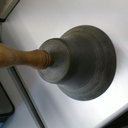Prognostic significance of combined albumin-bilirubin and tumor-node-metastasis staging system in patients who underwent hepatic resection for hepatocellular carcinoma.
Palabras clave
Abstracto
BACKGROUND
In recent years, the establishment of new staging systems for hepatocellular carcinoma (HCC) has been reported worldwide. The system combining albumin-bilirubin (ALBI) with tumor-node-metastasis stage, developed by the Liver Cancer Study Group of Japan, was called the ALBI-T score.
METHODS
Patient data were retrospectively collected for 357 consecutive patients who had undergone hepatic resection for HCC with curative intent between January 2004 and December 2015. The overall survival and recurrence-free survival were compared by the Kaplan-Meier method, using different staging systems: the Japan integrated staging (JIS), modified JIS, and ALBI-T.
RESULTS
Multivariate analysis identified five poor prognostic factors (higher age, poor differentiation, the presence of microvascular invasion, the presence of intrahepatic metastasis, and blood transfusion) that influenced overall survival, and four poor prognostic factors (the presence of intrahepatic metastasis, serum α-fetoprotein level, blood transfusion, and each staging system (JIS, modified JIS, and ALBI-T score)) that influenced recurrence-free survival. Patients for each these three staging system had a significantly worse prognosis regarding recurrence-free survival, but not with overall survival. The modified JIS score showed the lowest Akaike information criteria statistic value, indicating it had the best ability to predict overall survival compared with the other staging systems.
CONCLUSIONS
This retrospective analysis showed that, in post-hepatectomy patients with HCC, the ALBI-T score is predictive of worse recurrence-free survival, even when adjustments are made for other known predictors. However, modified JIS is better than ALBI-T in predicting overall survival.


